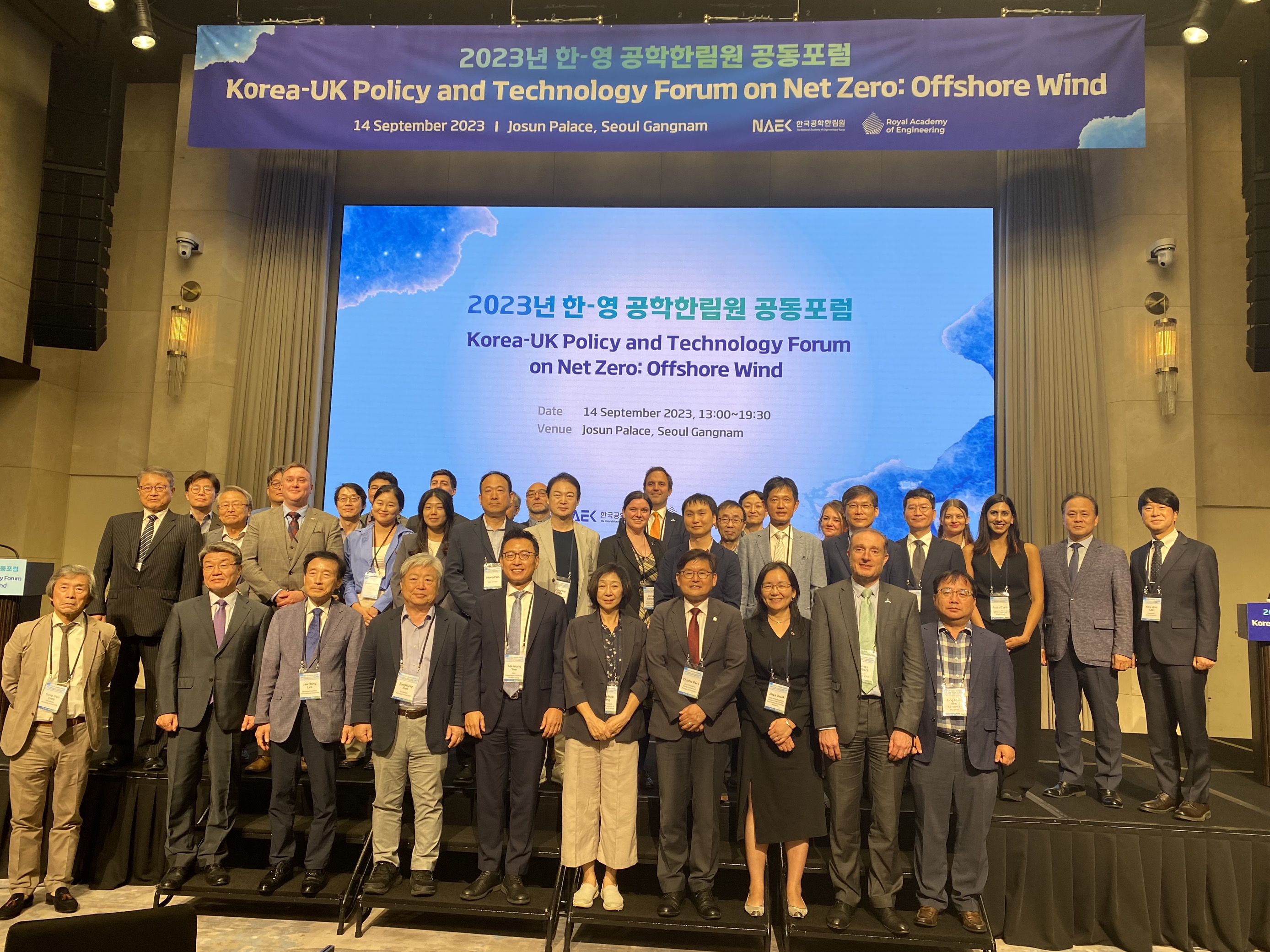September is shaping up to be a particularly busy month for the Academy’s team that leads on partnerships with Europe, North America and East Asia. The team has been organising the Academy’s representation at events in South Korea, Spain and Croatia as well as participation in the final Global Grand Challenges Summit held with China and the US academies.
Engineers have essential roles to play in addressing the world’s most pressing challenges and we are a national academy with a global outlook. The Academy’s strategic goals “to harness the power of engineering to build a sustainable society and an inclusive economy” are only achievable through international collaboration and one of the Academy’s important roles is to help lead debate and public policy projects that address key global challenges.
When it comes to reducing carbon emissions, coordinated international action is essential in order to drive the systemic global changes necessary to advance the development and adoption of sustainable energy sources. I am therefore delighted that this month I shall be technical lead for a bilateral exchange with South Korea that will focus on driving exchange on offshore wind policy and technology.
This exchange is taking place in Seoul on 12–15 September 2023 in partnership with the National Academy of Engineering Korea (NAEK) and is one of the Academy’s first flagship activities to be funded under that portion of the UK government’s newly launched International Science Partnership Fund (ISPF) that lies outside the Official Development Assistance (ODA).
The ISPF was launched by the UK government on 1 April to “help the UK and its partners deliver bigger, better science than one country can do alone.” And this bilateral exchange is focusing on one of the ISPF’s themes: a resilient planet.
The Academy will spearhead a delegation of seven leading UK offshore wind experts and organisations, including myself and representatives and experts from the Offshore Renewable Energy Catapult, Carbon Trust, Renewable UK, University of Hull, and University of Plymouth.

The exchange in Seoul is a chance to strengthen partnership between the UK and South Korea. It provides a platform to identify potential avenues for academic and commercial collaborations and market expansion but also to foster reciprocal learning in the realms of policy and industrial strategies. I hope that this reciprocal exchange of knowledge will help both our nations to leapfrog hurdles, optimise strategies, and create synergistic solutions that advance our offshore wind sectors and help us towards a greener future.
As Director of the EPSRC-funded Supergen Offshore Renewable Energy Impact Hub, I am delighted to be technical lead for this exchange and am looking forward to building potential future collaborations and exchanges in offshore wind. Working together, we can advance the development and adoption of renewable energy and tackle global challenges more effectively.
This Seoul exchange marks the first in a series of thought leadership workshops hosted by the Academy in partnership with our sister academies in advanced economies. These have been made possible through an uplift in the Academy’s funding from government via ISPF in order to our partnerships with engineering academies worldwide.
What would you be most interested in finding out about OSW? Follow @RAEngGlobal for updates on our journey.
